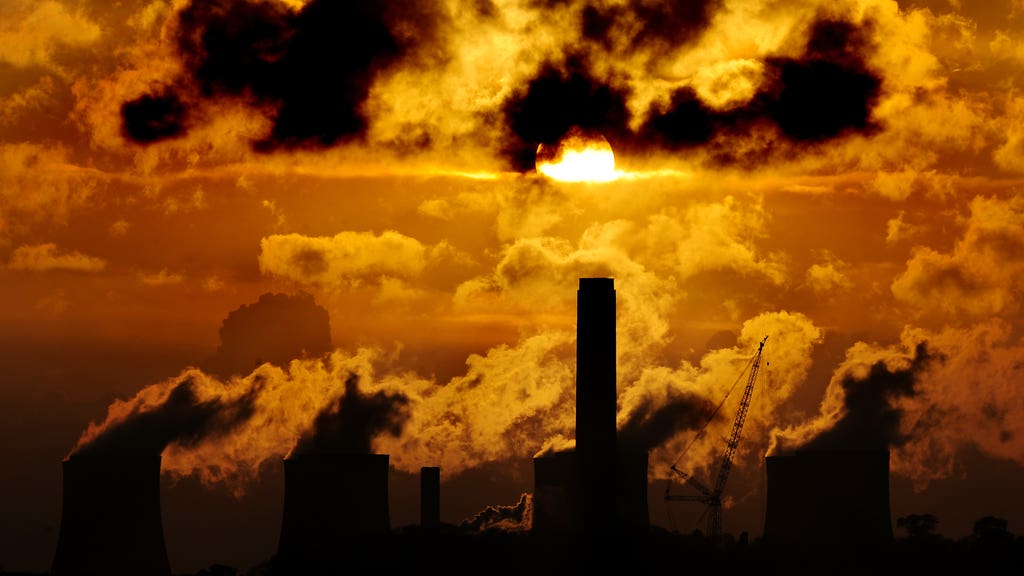A new draft of the deal that could be agreed at the Glasgow COP26 climate talks appears to have watered down its push to curb fossil fuels.
The first draft of the “cover decision” for the overarching agreement at the summit called for countries “to accelerate the phasing-out of coal and subsidies for fossil fuels”.
In a new draft produced on Friday morning, that has changed to calling on countries to accelerate the shift to clean energy systems, “including by rapidly scaling up clean power generation and accelerating the phaseout of unabated coal power and of inefficient subsidies for fossil fuels”.
The inclusion of a reference to fossil fuels was a first for a UN decision document of this type but was expected to get fierce pushback from some countries – and still may not survive to the final text.
Talks went on through the night and look set to overrun from their finish time of Friday evening as negotiators come under pressure to resolve issues around finance for poor countries, fossil fuels, the efforts of countries to cut emissions in the 2020s and rules on carbon markets and transparency.
The latest draft appears to have strengthened language on getting countries to “revisit and strengthen the 2030 targets” in their national action plans by the end of 2022 to align with global goals to limit temperature rises to “well below” 2C and try to limit them to 1.5C.
The new version “requests” countries do so, thought to be stronger language within the UN system than the previous version, which only urged them to do so.
Nicola Sturgeon says the new agreement is “slightly better” but it “still has a way to go”.
The First Minister told BBC Breakfast: “So, it is in many respects slightly better than the draft that was published earlier in the week, but it still has a way to go.
“So, on the upside, you know, there’s a clear recognition that 1.5 degrees is the goal in terms of limiting global warming. There seems to be movement on adaptation finance, there is wording on loss and damage.”
But she added: “On the downside, still not a delivery of the 100 billion dollars financial commitment (from developed nations to vulnerable countries), the expression of regret and disappointment – but the people who are expressing regret are the people who can deliver it. So hopefully we’ll see that change.
“And still the fact that, although there is a recognition that 1.5 degrees is the goal, we are way off track to actually meet that, we’re still on a track for a world of 2.4 degrees global warming. For many parts of the world that is a death sentence.”
Michael Jacobs, former climate adviser to Gordon Brown and veteran of Cop talks, said UK, EU and UNFCCC lawyers were saying that “requests” was stronger language than “urges”.
He said: “I see this as a strengthening of the language which effectively means countries are being told to come back next year with nationally determined contributions aligned to the 1.5C temperature goal.”
Scientists have warned that keeping temperature rises to 1.5C – beyond which the worst impacts of climate change will be felt – requires global emissions to be cut by 45% by 2030, and to zero overall by mid-century.
But current action plans known as nationally determined contributions for emissions cuts up to 2030 leave the world well off track to meet the goal, and could see warming of 2.4C over the long term.
So countries are under pressure to rapidly increase their ambition for emission cuts in the 2020s to stop the 1.5C goal slipping out of reach.
There is now a date – missing from the first draft – for when developed countries should double the provision of finance to help developing countries adapt to climate change – by 2025.
Providing finance for developing countries to develop cleanly, adapt to the impacts of climate change and address the loss and damage to people, livelihoods, land and infrastructure already being hit by increasing weather extremes and rising seas is also key to securing a deal in Glasgow.
Follow STV News on WhatsApp
Scan the QR code on your mobile device for all the latest news from around the country


 PA Media
PA Media

























